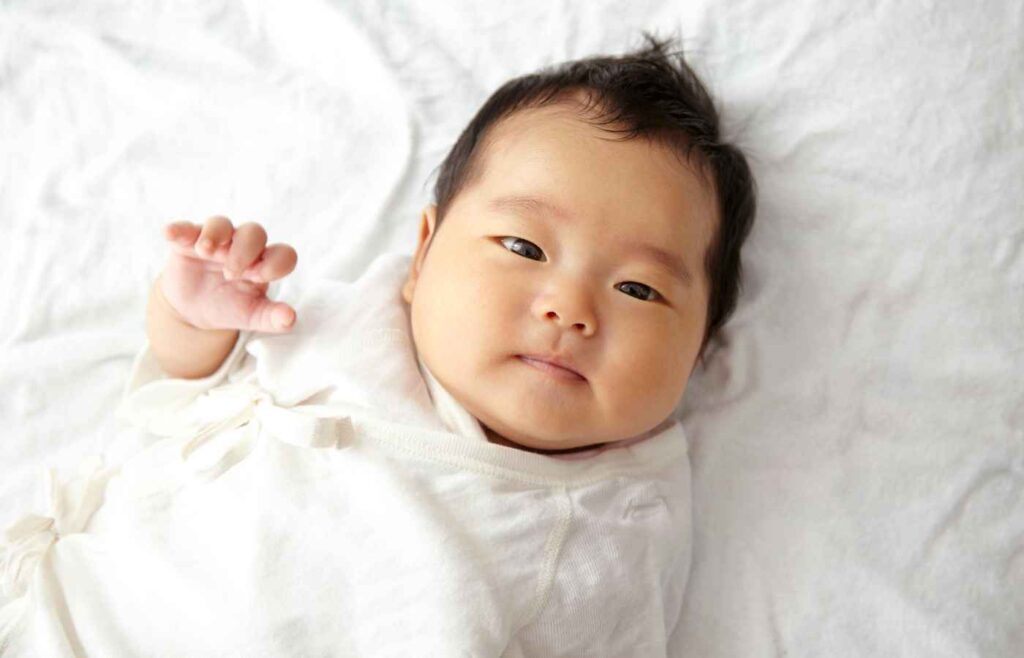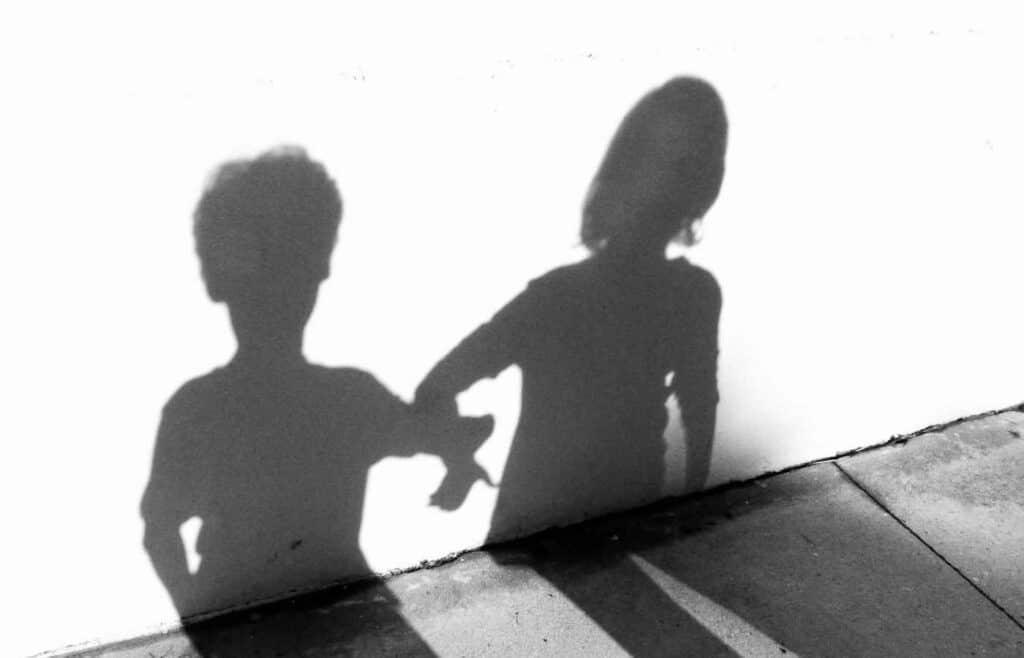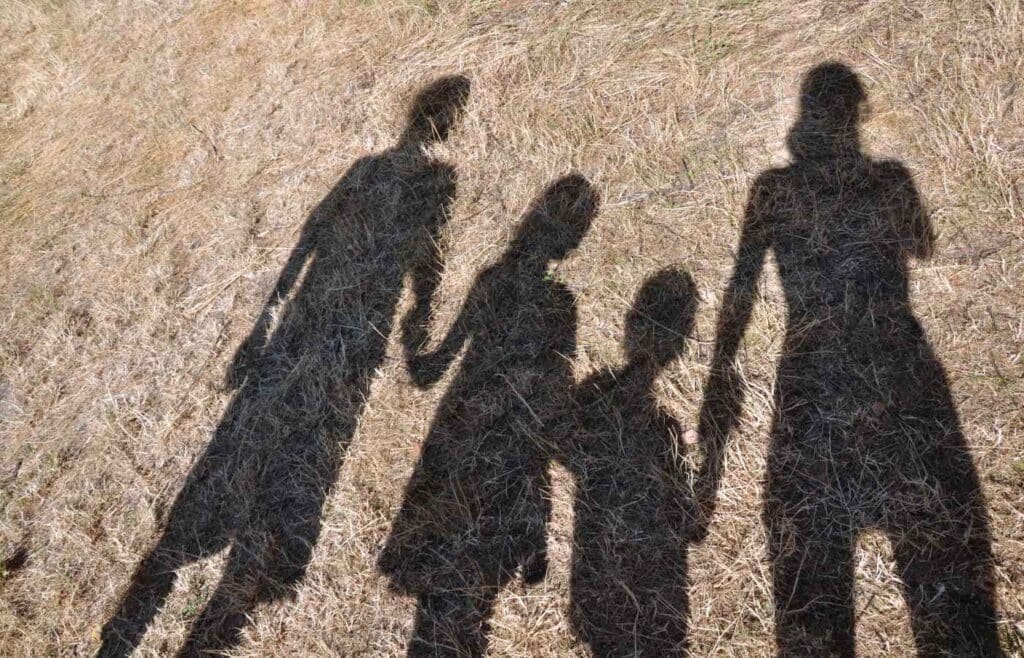Choosing a name for a baby is a significant decision for parents, as it becomes an integral part of their child’s identity for their whole life.
Names hold the power to shape perceptions, evoke emotions, and even influence the path a person takes in life. They serve as a personal marker, carrying cultural, familial, and sometimes, even symbolic meanings.
In Japanese culture, names are carefully chosen to reflect the profound meanings and symbolism deeply rooted in their rich traditions. Each name holds a story, a representation of the values and aspirations cherished by the Japanese people. For those seeking a unique and meaningful name, Japanese names offer a wealth of options.

In this blog post, we will explore a specific theme within Japanese names: those that mean shadow, or evoke the intriguing and mysterious concept of “shadow.”
The purpose of this post is to provide an extensive list of Japanese baby names that embody the essence of “shadow.” These names carry a sense of depth, beauty, and enigma, reflecting the cultural significance of shadows in Japan.
Whether you are expecting a child, have a passion for Japanese culture, or simply appreciate the poetic nature of shadow-related names, this curated list will offer you a selection of unique and meaningful options to consider.
While some names on the list have dark meanings, they are filled with mystery, depth, and uniqueness.
Join us on the dark side and explore the most interesting names of Japanese origin, along with their Kanji characters. Discover the allure of “shadow” and the mysterious names that weave through the tapestry of Japanese culture.

- Kage (影) – Shadow
- Meaning: The name Kage, derived from the Japanese word for “shadow,” represents the elusive and mysterious nature of shadows. This unisex name evokes a sense of depth and intrigue, symbolizing the unseen aspects of life.
- Kuro (黒) – Black, Darkness:
- Meaning: Kuro, meaning “black” or “darkness” in Japanese, carries a sense of depth and enigma. It is a popular name for boys in Japan. This unique name represents the absence of light and often symbolizes the unknown or the hidden aspects of existence.
- Origin: Japanese.
- Yami (闇) – Darkness:
- Meaning: Yami, derived from the Japanese word for “darkness,” embodies the concept of obscurity and the absence of light. It is often associated with the mysterious, the deep, and the unknown.
- Origin: Japanese.
- Kurai (暗い) – Dark, Gloomy:
- Meaning: Kurai, meaning “dark” or “gloomy” in Japanese, captures the essence of shadows and dimness. This cool name represents the melancholic beauty found in twilight and the intriguing allure of the night.
- Origin: Japanese.
- Anko (暗子) – Dark Child:
- Meaning: Anko combines the characters for “dark” (an) and “child” (ko) in Japanese, giving rise to the meaning of “dark child” or “child of darkness.” It conveys a sense of uniqueness and mystique.
- Origin: Japanese.
- Yumiko (由美子) – Child of Beauty and Darkness:
- Meaning: Yumiko combines the characters for “beauty” (yumi) and “child” (ko) in Japanese. It has a beautiful meaning, symbolizing a “child of beauty and darkness,” and representing the captivating juxtaposition of light and shadows. Yumeko is a lovely name that has gained popularity in recent years. Its connection to dreams and its soft, melodic sound make it a great choice for a little girl.
- Origin: Japanese.
- Kageyuki (影雪) – Shadow Snow:
- Meaning: Kageyuki combines the characters for “shadow” (kage) and “snow” (yuki) in Japanese, giving the name the poetic meaning of “shadow snow.” It evokes a sense of tranquility and ethereal beauty.
- Origin: Japanese.
- Yumori (夢織) – Dream Weaver:
- Meaning: Yumori combines the characters for “dream” (yume) and “weave” (ori) in Japanese. It symbolizes a “dream weaver,” someone who crafts dreams with their imagination, alluding to the mysterious nature of shadows in dreams.
- Origin: Japanese.
- Inei (陰影) – Shadow and Light:
- Meaning: Inei combines the characters for “shadow” (in) and “light” (ei) in Japanese, representing the harmonious interplay of “shadow and light.” It reflects the duality and balance of opposing forces in life.
- Origin: Japanese.
- Yamako (闇子) – Child of Darkness:
- Meaning: Yamako combines the characters for “darkness” (yama) and “child” (ko) in Japanese. It symbolizes a “child of darkness,” representing an individual who carries the enigmatic qualities and depth associated with shadows.
- Origin: Japanese.
- Kuran (暗藍) – Dark Indigo:
- Meaning: Kuran combines the characters for “dark” (an) and “indigo” (ai) in Japanese. It represents the deep and mysterious hue of dark indigo, symbolizing the essence of shadows.
- Origin: Japanese.
- Kagami (鏡) – Mirror, Reflection:
- Meaning: Kagami means “mirror” or “reflection” in Japanese. This is a great name that signifies the reflective nature of shadows and the idea of self-reflection and introspection.
- Origin: Japanese.
- Kagerou (陽炎) – Heat Haze, Shimmering:
- Meaning: Kagerou represents the phenomenon of heat haze or shimmering in Japanese. It conveys a sense of fleeting beauty and evokes the image of shimmering shadows. Kagerou refers to the “heat haze” or “shimmering” phenomenon often associated with supernatural or otherworldly occurrences in Japanese folklore.
- Origin: Japanese.
- Yamiyo (闇夜) – Dark Night:
- Meaning: Yamiyo combines the characters for “darkness” (yami) and “night” (yo) in Japanese. It refers to the profound darkness of the night, symbolizing the mysterious and alluring nature of shadows.
- Origin: Japanese.
- Yumeko (夢子) – Dream Child:
- Meaning: Yumeko combines the characters for “dream” (yume) and “child” (ko) in Japanese. It represents a “dream child,” embodying the imaginative and ethereal qualities associated with dreams and shadows.
- Origin: Japanese.
- Yumika (夢花) – Dream Flower:
- Meaning: Yumika combines the characters for “dream” (yume) and “flower” (ka) in Japanese. It symbolizes a “dream flower,” reflecting the delicate and ephemeral nature of dreams and shadows.
- Origin: Japanese.
- Kurayami (暗闇) – Pitch-Black Darkness:
- Meaning: Kurayami combines the characters for “dark” (an) and “darkness” (yami) in Japanese. It signifies a state of intense and profound darkness, emphasizing the depth and mystery of shadows.
- Origin: Japanese.
- Akage (赤毛) – Red Shadow:
- Meaning: Akage combines the characters for “red” (aka) and “shadow” (ge) in Japanese. It represents a “red shadow,” conveying a sense of vibrant and intense darkness associated with shadows.
- Origin: Japanese.
- Kurohime (黒姫) – Black Princess:
- Meaning: Kurohime combines the characters for “black” (kuro) and “princess” (hime) in Japanese. It symbolizes a “black princess,” evoking an image of elegance and mystery associated with shadows.
- Origin: Japanese.
- Kurogane (黒鉄) – Black Iron:
- Meaning: Kurogane combines the characters for “black” (kuro) and “iron” (gane) in Japanese. It signifies the strength and resilience represented by black iron, reflecting the enduring nature of shadows.
- Origin: Japanese.
- Kagehisa (影久) – Eternal Shadow:
- Meaning: Kagehisa combines the characters for “shadow” (kage) and “long-lasting” (hisa) in Japanese. It conveys the idea of an “eternal shadow,” representing the enduring presence and influence of shadows.
- Origin: Japanese.
- Yumemi (夢見) – Dreamer:
- Meaning: Yumemi combines the characters for “dream” (yume) and “see” (mi) in Japanese. It represents a “dreamer,” someone who envisions and embraces the realm of dreams and shadows.
- Origin: Japanese.
- Kurenai (紅) – Crimson, Deep Red:
- Meaning: Kurenai means “crimson” or “deep red” in Japanese. It signifies the intense and passionate hue associated with shadows, evoking a sense of intrigue and allure.
- Origin: Japanese.
- An’ya (暗夜) – Dark Night:
- Meaning: An’ya combines the characters for “dark” (an) and “night” (ya) in Japanese. It represents a “dark night,” emphasizing the depth and enigmatic nature of shadows during the nighttime.
- Origin: Japanese.
- Yumina (夢菜) – Dream Vegetable:
- Meaning: Yumina combines the characters for “dream” (yume) and “vegetable” (na) in Japanese. It symbolizes a “dream vegetable,” reflecting the delicate and nourishing qualities associated with dreams and shadows.
- Origin: Japanese.
- Kurumi (胡桃) – Walnut:
- Meaning: Kurumi means “walnut” in Japanese. It represents the rich, dark hue of walnuts and reflects the symbolism of hidden treasures and the enigmatic nature of shadows.
- Origin: Japanese.
- Kageshiro (影白) – Shadow White:
- Meaning: Kageshiro combines the characters for “shadow” (kage) and “white” (shiro) in Japanese. It symbolizes the contrast and interplay between shadows and light, emphasizing the blending of darkness and purity.
- Origin: Japanese.
- Kuronuma (黒沼) – Black Swamp:
- Meaning: Kuronuma combines the characters for “black” (kuro) and “swamp” (numa) in Japanese. It represents a “black swamp,” evoking a sense of mystery and intrigue associated with shadows and dark places.
- Origin: Japanese.
- Yumie (夢江) – Dream Bay:
- Meaning: Yumie combines the characters for “dream” (yume) and “bay” (e) in Japanese. It symbolizes a “dream bay,” representing a tranquil and enchanting place connected to the realm of dreams and shadows.
- Origin: Japanese.
- Koku (黒) – Blackness:
- Meaning: Koku means “blackness” in Japanese. It represents the essence of darkness and shadows, evoking a sense of depth and mystery.
- Origin: Japanese.
- Kagemi (陰御) – Shadow and Grace:
- Meaning: Kagemi combines the characters for “shadow” (in) and “grace” (mi) in Japanese. It signifies the graceful and elegant nature of shadows, highlighting their subtle yet captivating presence.
- Origin: Japanese.
- Kageaki (影明) – Bright Shadow:
- Meaning: Kageaki combines the characters for “shadow” (kage) and “bright” (aki) in Japanese. It represents a “bright shadow,” symbolizing the contrast and interplay between light and shadows.
- Origin: Japanese.
- Yumika (夢香) – Dream Fragrance:
- Meaning: Yumika combines the characters for “dream” (yume) and “fragrance” (ka) in Japanese. It signifies a “dream fragrance,” evoking the enchanting and elusive qualities associated with dreams and shadows.
- Origin: Japanese.
- Kuronosuke (黒之助) – Helper of Darkness:
- Meaning: Kuronosuke combines the characters for “black” (kuro) and “helper” (nosuke) in Japanese. It represents a “helper of darkness,” symbolizing a companion or supporter in the realms of shadows and the unknown.
- Origin: Japanese.
- Yumiko (夢美子) – Child of Beautiful Dreams:
- Meaning: Yumiko combines the characters for “dream” (yume), “beauty” (mi), and “child” (ko) in Japanese. It signifies a “child of beautiful dreams,” emphasizing the enchanting and ethereal qualities associated with dreams and shadows.
- Origin: Japanese.
- Kagetsu (影月) – Shadow Moon:
- Meaning: Kagetsu combines the characters for “shadow” (kage) and “moon” (tsuki) in Japanese. It represents a “shadow moon,” symbolizing the mysterious and poetic connection between shadows and the moon.
- Origin: Japanese.
- Kurenai (紅蓮) – Crimson Lotus:
- Meaning: Kurenai combines the characters for “crimson” (kurenai) and “lotus” (ren) in Japanese. It symbolizes a “crimson lotus,” representing the deep and vibrant beauty associated with shadows and hidden depths.
- Origin: Japanese.
- Kageko (影子) – Shadow Child:
- Meaning: Kageko combines the characters for “shadow” (kage) and “child” (ko) in Japanese. This boy’s name means “shadow child,” embodying the enigmatic and captivating qualities associated with shadows.
- Origin: Japanese.
- Kureha (紅葉) – Crimson Leaf:
- Meaning: Kureha combines the characters for “crimson” (kure) and “leaf” (ha) in Japanese. It signifies a “crimson leaf,” evoking the imagery of shadows cast by vibrant autumn foliage.
- Origin: Japanese.
- Yumina (夢奈) – Dreamful:
- Meaning: Yumina combines the characters for “dream” (yume) and “peaceful” (na) in Japanese. This sweet name represents a state of being “dreamful” or immersed in dreams and shadows.
- Origin: Japanese.
- Yoru (夜) – Night:
- Meaning: Yoru means “night” in Japanese. This gender-neutral name represents the mystical and transformative nature of darkness and shadows during the nighttime.
- Origin: Japanese.
- Kageyama (影山) – Shadow Mountain:
- Meaning: Kageyama combines the characters for “shadow” (kage) and “mountain” (yama) in Japanese. It’s a strong choice, signifying a “shadow mountain,” symbolizing the strength and majesty of shadows.
- Origin: Japanese.
- Kuronosora (黒乃空) – Black Sky:
- Meaning: Kuronosora combines the characters for “black” (kuro), “of” (no), and “sky” (sora) in Japanese. It represents a “black sky,” signifying the vast and mysterious expanse of the heavens associated with shadows.
- Origin: Japanese.
- An’ei (暗影) – Dark Shadow:
- Meaning: An’ei combines the characters for “dark” (an) and “shadow” (ei) in Japanese. It signifies a “dark shadow,” emphasizing the depth and enigmatic nature of shadows.
- Origin: Japanese.
- Yumito (夢人) – Dream Person:
- Meaning: Yumito combines the characters for “dream” (yume) and “person” (to) in Japanese. It represents a “dream person,” someone who embodies the essence of dreams and shadows.
- Origin: Japanese.
- Kageyoshi (影良) – Good Shadow:
- Meaning: Kageyoshi combines the characters for “shadow” (kage) and “good” (yoshi) in Japanese. The meaning of the name is “good shadow,” representing the positive aspects and influence of shadows.
- Origin: Japanese.
- Kiri (霧) – Mist:
- Meaning: Kiri means “mist” in the Japanese language. It symbolizes the ethereal and elusive nature of shadows, evoking a sense of mystery and intrigue.
- Origin: Japanese.
- Kageri (陰) – Shade:
- Meaning: Kageri means “shade” in Japanese. It represents the subtle and nuanced aspects of shadows, emphasizing their gentle and evocative presence.
- Origin: Japanese.
- Kuronagi (黒凪) – Black Calm:
- Meaning: Kuronagi combines the characters for “black” (kuro) and “calm” (nagi) in Japanese. It signifies a state of “black calm,” representing the tranquility and stillness associated with shadows.
- Origin: Japanese.
- Yumira (夢良) – Good Dream:
- Meaning: Yumira combines the characters for “dream” (yume) and “good” (ra) in Japanese. It represents a “good dream,” emphasizing the positive and uplifting qualities of dreams and shadows.
- Origin: Japanese.
- Yamienkoku” (闇炎国) – Dark Angel
- t combines the characters for “darkness” (yami/闇), “flame” (en/炎), and “country” (koku/国). This name conveys the concept of a celestial being associated with darkness and fire, representing a mysterious and powerful figure.
52. “Kamikage” (神影) – Shadow of God
- “Kami” (神) means “god” or “deity” in Japanese.
- “Kage” (影) means “shadow” in Japanese.
53. “Yoruame” (夜雨) – Night Rain
- “Yoru” (夜) means “night” in Japanese.
- “Ame” (雨) means “rain” in Japanese.
Combining these two elements, “Yoruame” symbolizes the rain that falls during the night. It evokes a sense of tranquility, serenity, and the beauty of rain in the darkness.

Note: The options on this list of names can be used for both a baby girl and baby boy. In Japanese culture, many names are considered gender-neutral, and their usage can vary depending on personal preference or cultural context. Therefore, the names on the list can be suitable for both boys and girls, allowing flexibility in choosing a name that resonates with the parents’ preferences and their child’s identity.
Note: The meanings and origins provided here are based on the interpretation of the individual characters that make up the names. It’s important to note that names can have multiple interpretations, different meanings, and personal significance, and their meaning may vary depending on cultural context and personal preference.

Popular Japanese Names
Of these names, here are the ones that are considered more common Japanese names:
- Kuro (黒) – Black, Darkness: Kuro is a popular name in Japan, especially for boys. Its association with the color black and darkness makes it a strong and intriguing choice.
- Kage (影) – Shadow: Kage is another popular name, often given to both boys and girls. It has a mysterious and evocative quality that appeals to many parents.
- Yumeko (夢子) – Dream Child: Yumeko is a charming name that has gained popularity in recent years. Its connection to dreams and its soft, melodic sound make it an attractive choice for girls.
- Kurumi (胡桃) – Walnut: Kurumi is a name that has been popular for girls in Japan. Its association with the walnut tree and its gentle sound give it a delicate and elegant appeal.
- Kagami (鏡) – Mirror, Reflection: Kagami is a name that has both traditional and modern popularity in Japan. Its association with mirrors and reflections adds a sense of depth and introspection.
- Yoru (夜) – Night: Yoru is a simple and poetic name that has been embraced by Japanese parents. Its connection to the nighttime and its tranquil, soothing sound make it a popular choice.
Japanese Girl Names
Of these names, here are the ones that are often used for girls:
- Anko (暗子) – Dark Child
- Yumiko (由美子) – Child of Beauty and Darkness
- Yumori (夢織) – Dream Weaver
- Yumeko (夢子) – Dream Child
- Yumika (夢花) – Dream Flower
- Yumie (夢江) – Dream Bay
- Yumina (夢奈) – Dreamful
- Yumira (夢良) – Good Dream
Japanese Boy Names
If you’re looking for a specifically male Japanese name, you’re in the right place. Based on the traditional gender associations in Japanese culture, here are the names from the previous list that are commonly used for boys:
- Kage (影) – Shadow
- Kuro (黒) – Black, Darkness
- Kageyuki (影雪) – Shadow Snow
- Kagehisa (影久) – Eternal Shadow
- Kageaki (影明) – Bright Shadow
- Kurohime (黒姫) – Black Princess
- Kurogane (黒鉄) – Black Iron
- Kageko (影子) – Shadow Child
- Kageyama (影山) – Shadow Mountain

This curated list of Japanese baby names associated with the concept of “shadow” offers a range of intriguing options for those seeking names with unique and interesting meanings.
From “Kage” meaning “Shadow” to “Yumiko” symbolizing a “Child of Beauty and Darkness,” these dark names hold a captivating allure.
Whether you are drawn to the mystery of shadows or the depth of darkness, these names provide a rich tapestry of possibilities for parents in search of a distinctive name for their child. Explore these dark names and discover the perfect blend of meaning and beauty for your little one.
Related Posts:
Japanese Names That Mean Light
50 Japanese Baby Names That Mean ‘Star’
25 Japanese Names That Mean “Flower”
Calie Herbst, Editor-in-Chief of Milwaukee With Kids, has spent over a decade combining her experiences as a parent of three to create a hub for Milwaukee’s family adventures.
Her decade-long teaching career in Milwaukee Public Schools and academic background, including a Master’s in Teaching from Marquette University and dual B.A.s in Sociology and Spanish from the University of Wisconsin – Madison, fuel her passion for inclusive and engaging family content.
Calie is also a recognized voice in local media, contributing to WISN Channel 12 News, WTMJ Wisconsin Morning News, Fox 6’s Real Milwaukee, and B93.3.
Discover more about Calie’s journey and editorial approach on her About Page and Editorial Policy Page.









